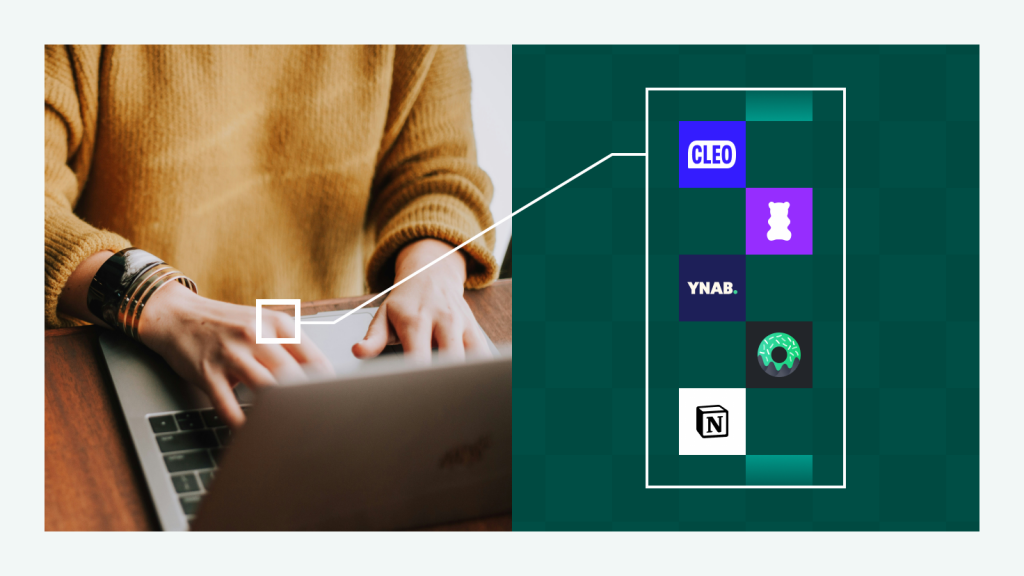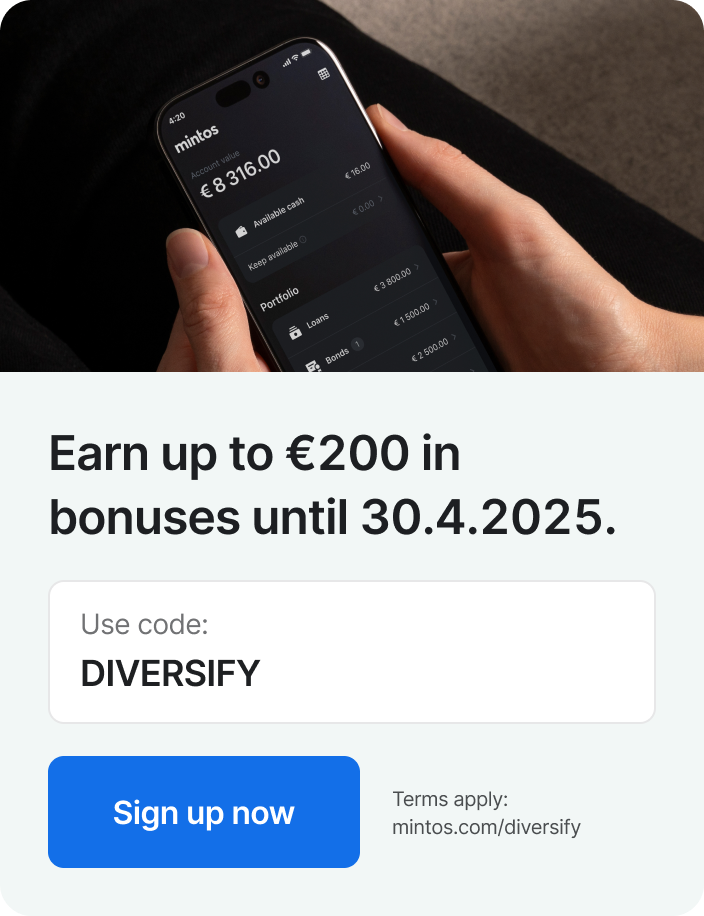Your phone probably already knows you better than your closest friends. It reminds you to stand up when you’ve been sitting too long, alerts you about weather conditions before you step outside, and even tracks how well you slept (or didn’t). There’s an app for everything.
So why not use the best budgeting apps for 2025 to manage your money more efficiently?
For years, budgeting has been a mix of different strategies. Some people swear by notebooks filled with scribbled expenses, others meticulously update spreadsheets filled with color-coded categories. Or maybe you skip budgeting altogether and just hope your account balance keeps up with your lifestyle.
If you’re ready to move on from whatever model you’re using, budgeting apps for beginners can be a game-changer. These digital tools for managing money simplify budgeting, automate savings, and deliver insights into where your money goes.
In this guide, we’ll cover:
✔ How budgeting apps help financial planning and improve spending habits
✔ Key features to look for in budgeting apps before choosing one
✔ The best budgeting apps in 2025 for different needs
✔ Budgeting apps vs. spreadsheets: Which is better?
✔ How to track expenses with budgeting apps
Let’s explore how the right app can make handling your finances hassle-free, smarter, and maybe even enjoyable. Once you’ve mastered budgeting, discover how to create multiple income streams.
How budgeting apps help with financial planning
If money had a mind of its own, it would probably love to disappear. A coffee here, a last-minute online purchase there, and suddenly you’re wondering where half your paycheck went. That’s why budgeting matters, it keeps your finances from running wild and helps you stay in control.
This is where budgeting apps come in. Instead of manually sorting receipts or guessing how much you’ve spent, these digital tools for managing money do the work for you through real-time insights into your spending habits.
> Learn how to set financial goals
Why budgeting apps are better than traditional methods
Budgeting might have been a tedious chore in the past, but personal finance apps make it easier and smarter than ever:
- Many automated budgeting apps categorize transactions for you
- Budgeting apps for saving money streamline reaching your personal finance targets
- Budgeting apps with bank integration for real-time updates on your spending
- Obtain insights into your income and expenses, even with free budgeting apps
- Access your budget anytime, anywhere, with digital tools for managing money that work across multiple devices
- The best budgeting apps for 2025 also supply customizable reports for in-depth breakdowns
> Find out how to boost your savings
Budgeting apps vs. spreadsheets
Spreadsheets grant full customization, allowing you to record every detail exactly the way you want. But they also require time, manual updates, and a solid understanding of formulas. Budgeting apps vs. spreadsheets comes down to flexibility versus convenience. If you prefer to build a system from scratch, spreadsheets give you that control. On the other hand, if you want automated management, real-time spending analysis, and goal-setting tools, the best budgeting apps for 2025 take care of the heavy lifting.
> See how automation can work for your investments
5 factors that make a budgeting app worth using
Not all personal finance apps are created equal. The right app depends on how you manage money and what level of control you want over your budget.
1. Ease of use
A budgeting app should simplify financial management, not make it frustrating. The best personal finance apps give you a look into spending trends, adjust budgets, and set goals without digging through menus or complex settings. A cluttered or unintuitive app will make budgeting feel like a chore rather than a tool to improve your life.
Look for:
- Clear dashboard with an overview of income, spending, and savings
- Customizable categories for expenses and milestones
A mobile-friendly interface with smooth navigation
2. Free vs. paid tools
Many free budgeting apps cover the fundamentals like expense logging and budgeting categories. Paid apps often add capabilities like real-time syncing, AI-driven spending analysis, and detailed projections. Before subscribing, ask whether these elements have tangible benefits or if the free version meets your needs.
Look for:
- Free trial options before committing to a paid plan
- Value offered by the paid version of the app
One-time payment vs. subscription model
3. Security and privacy
If an app connects to your bank accounts, security should be non-negotiable. Budgeting apps with bank integration must protect your data through encryption, authentication, and strict privacy policies. Some users prefer apps that don’t require bank access, allowing full manual entry instead.
Look for:
- End-to-end encryption and two-factor authentication (2FA)
- Clear data privacy policies (check what’s stored and shared)
Offline/manual entry for privacy-conscious users
4. Multi-currency and travel-friendly options
For those who earn, save, or spend in multiple currencies, budgeting apps for saving money with multi-currency support prevent exchange rate confusion. International users benefit from apps that automatically convert transactions and categorize spending across different currencies.
Look for:
- Multi-currency tracking with real-time exchange rate updates
- Ability to categorize expenses in different currencies
- Support for international transactions without distorting budget reports
5. Sharing or integration for household budgeting
The best budgeting apps for couples, families, or roommates should make it easy to manage shared expenses while keeping personal finances separate. Look for apps that enable multiple users to access the same budget, split bills, and track household spending in real time. The best digital tools for managing money have functionality that simplify coordinating expenses and putting away money toward shared goals.
Look for:
- Shared access for multiple users to manage a single budget
- Export options (CSV, PDF) for detailed reporting
- Bill-splitting and financial activity for households
Best budgeting apps for 2025
The right budgeting app guides you to build better financial habits. These five apps cater to different money management styles, so you can find one that fits how you spend and save.
Cleo
Cleo makes budgeting feel less like a chore and more like chatting with a brutally honest friend. This AI-powered assistant tracks spending, sets savings goals, and provides financial advice, all with a sharp sense of humor. Transactions are categorized automatically, and low balance alerts and bill reminders keep you in check.
If you’re overspending, Cleo won’t just warn you. Roast Mode is ready to dish out tough love and call you out on your spending habits. Need encouragement instead? Switch to Hype Mode and get a pep talk.
Key features:
- AI-powered financial coaching
- Automated savings tools and spending suggestions
- Budget breakdowns with fun, engaging reminders
- Overdraft alerts and bill payment tracking
Best for:
Users who want a lighthearted, AI-driven approach to taking charge of their wealth. Cleo makes financial planning feel less like a set of rules and more like a personal challenge.
Cost:
Cleo’s free version comes with core features, while Cleo Plus (€5.50/month or €41.50/year) adds personalized savings goals and support with credit scores.
Emma
Emma acts like a financial assistant that never sleeps. It tracks expenses, categorizes transactions, and monitors subscriptions, making sure your money goes where it should. Instead of sifting through bank statements, Emma gives you real-time spending insights and flags unused services that quietly drain your budget. With bill reminders, savings tools, and budget tracking, take control of your finances without the hassle of manual work.
Key features:
- Automatic transaction categorization
- Spending reports and insights
- Secure bank integration for real-time monitoring
Best for:
Users looking for a hands-off management experience that tracks spending and reduces unnecessary costs.
Cost:
Emma is a free budgeting app with essential functions. Premium plans range from €5.75 to €17.25/month. These plans unlock additional tools like custom categories, advanced records, and net worth calculations.
YNAB
YNAB is for you if you want to take charge of your finances. It follows the zero-based budgeting method, where every euro is assigned a specific purpose, ensuring that income minus expenses always equals zero. Stay intentional with spending, prioritize savings, and prevent money from slipping through the cracks.
Key features:
- Custom spending categories and planning tools
- Goal reviews for savings, debt repayment, and big purchases
- Spending reports and net worth insights for a clear overview
- Secure bank integration and multi-device syncing
Best for:
Users who want a structured, hands-on approach to budgeting and are willing to actively plan their finances.
Cost:
YNAB costs €14.99/month or €99/year, take advantage of the 34-day free trial before committing
Wallet by BudgetBakers
Keeping track of your finances is one thing. Keeping track of them across multiple currencies, fluctuating exchange rates, and different income sources? That’s a whole other challenge. Wallet simplifies money management by organizing transactions, no matter where or how you spend. Budgeting apps with bank integration allow you to sync transactions automatically for even greater accuracy.
Key features:
- Multi-currency support with real-time exchange rates
- Automated transaction categorization and manual cash entry
- Detailed reports and analytics
- Bill tracking and budget planning
Best for:
Freelancers, travelers, and users managing multiple income sources or spending in different currencies.
Cost:
The free version allows basic tracking, while Wallet Premium (€21.99/year) users get unlimited bank account syncs, multi-user collaboration, advanced charts and reports, and additional widgets and tools.
Notion
Those new to budgeting likely prefer an app to tell them exactly how to budget. Others want the freedom to build a system that works for them. Notion is for the second group. Instead of rigid categories and preset limits, Notion gives you a blank canvas to design your own budgeting system.
Cost:
- Fully customizable budget templates
- Expense tracking with manual input
- Goal setting and planning dashboards
- Integration with other productivity tools for seamless organization
Best for:
Users who prefer a DIY approach and want total flexibility in how they budget.
Cost:
Notion’s free plan includes basic offerings, while Notion Plus (€8/month) adds collaboration tools, advanced widgets, and extra customization for more complex budgeting setups.
Turn your budget into an investment plan
Now that you’ve explored the best budgeting apps and learned how to manage your money effectively, you might already be thinking about the next step in your financial journey. A solid budget helps you track expenses and save efficiently, but long-term financial growth starts with smart investing.
The best budgeting apps for investing not only help you manage your cash flow but also simplify setting aside funds for wealth-building opportunities. A well-diversified portfolio balances risk and return, so your money works for you over the long term.
Investment options on Mintos
- Loans – Earn regular interest payments, diversify across sectors and regions, and choose between automated or hands-on investing.
- Bonds – Invest from €50, earn fixed returns, and diversify your investments. A great option for those looking for steady, passive income.
- Passive real estate – Generate monthly rental income from property-backed investments with a lower entry point than direct ownership.
- Smart Cash – Access a money market fund with the highest rating that offers higher interest than traditional savings with same-day withdrawals.
- ETFs – Invest in ETFs globally with a single portfolio, enjoy diversification, and zero commission fees, starting from just €50.
Disclaimer
This is a marketing communication and in no way should be viewed as investment research, advice, or a recommendation to invest. The value of your investment can go up as well as down, and you may lose part or all of your invested capital. Past performance of financial instruments does not guarantee future returns. Investing in financial instruments involves risk; before investing, consider your knowledge, experience, financial situation, and investment objectives.
Any scenarios or examples provided are for illustrative purposes only. They do not guarantee specific outcomes or returns and should not be relied upon when making investment decisions. Actual results may vary based on market conditions, issuer performance, and other factors.

